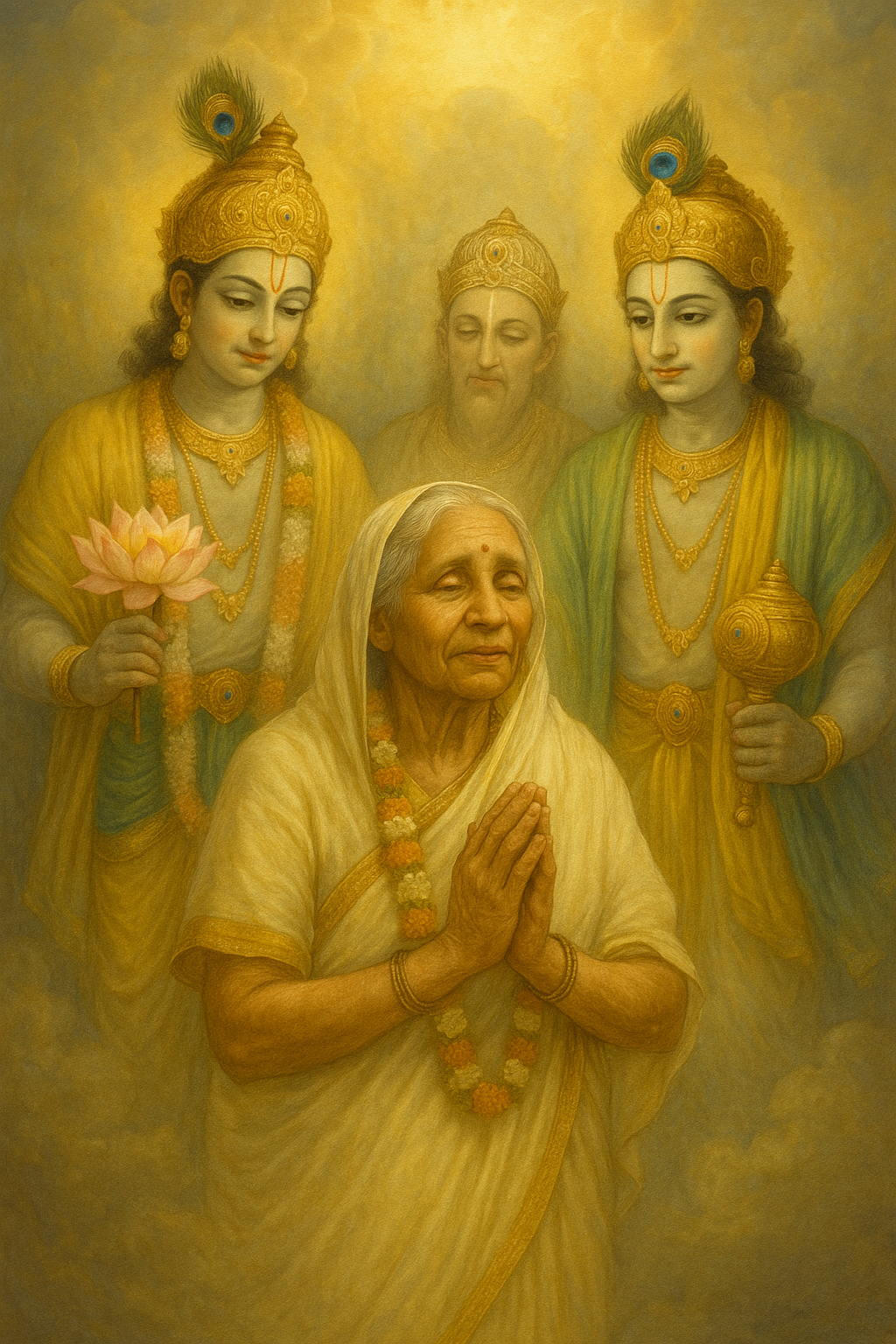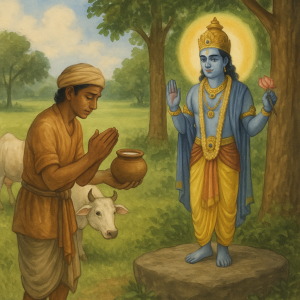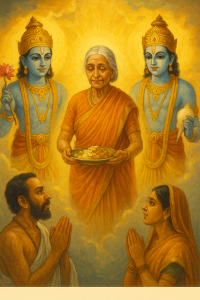In a town where daily worship of Lord Viṣṇu was well established, there lived a brāhmaṇa woman, married into a family of priests. Though her husband was engaged in temple worship and recitation of scriptures, she herself was not particularly devout. She was respectful, but not inclined toward deep spiritual practice or austerity.
Each day, after the deity of Lord Viṣṇu had been worshipped in the temple, her husband would bring home prasāda—the remnants of food offered to the Lord. He would honor the prasāda with reverence and sometimes share a portion with her.
She would eat the food without thinking deeply about its sacredness. At times she even grumbled about the simplicity of the offering, longing for more flavorful or luxurious meals. Yet, she continued to eat the Lord’s remnants daily, simply as part of household routine.
Years passed, and eventually she left her body at an old age. She had never undertaken vows or fasted on Ekādaśī, nor had she read sacred texts or chanted the holy name. Her life, outwardly, had been ordinary.
But the power of the prasāda she had consumed told another story.
As her soul left the body, Viṣṇudūtas appeared in brilliant golden form, holding lotus flowers and conch shells. They gently addressed her soul:
“O fortunate one, though you did not knowingly worship the Lord, you honored the remnants of His prasāda. Even without understanding, you touched that which is non-different from Lord Viṣṇu Himself. That sanctified food has purified you over many years. You are now free from material bondage.”
Before the astonished gaze of the family, her soul ascended with the Viṣṇudūtas to Vaikuṇṭha, where she was granted a divine form and eternal service at the Lord’s lotus feet.
The villagers and relatives, having witnessed this, gained deep respect for prasāda, understanding it to be sacred and transformative, even when honored casually.
Lessons from This Story:
- Viṣṇu-prasāda is not ordinary food—it is spiritual substance, carrying the Lord’s mercy.
- Even without deep knowledge or intention, honoring prasāda purifies the heart and brings liberation.
- The Lord resides in His prasāda, and it should be treated with the same reverence as the deity Himself.
- Those who regularly partake in prasāda, even without devotion, are gradually drawn toward the Lord and eventually blessed with His grace.



